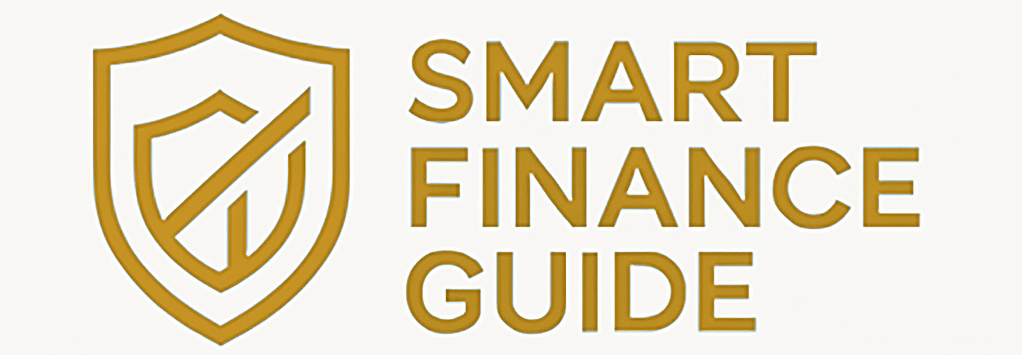Embarking on the journey of wealth creation through investing is one of the most important steps you can take for your future. However, for those just getting started, the landscape can appear daunting. The sheer volume of jargon—IRA, 401(k), HSA, brokerage—and the complex rules surrounding each can make choosing the right vehicle feel overwhelming.
The truth is, once you grasp the fundamental purpose and tax mechanics of each option, selecting the Best Investment Accounts for Beginners becomes a straightforward, logical process.
The account you choose is just as critical as the investments you select (stocks, funds, etc.). The right container can amplify your growth through tax advantages, while the wrong choice can needlessly delay your retirement or cost you thousands in unnecessary taxes.
In this comprehensive, step-by-step guide from the Smart Finance Guide, we will demystify the Best Investment Accounts for Beginners in the U.S. financial system. We’ll explain their unique roles, analyze their pros and cons, detail their 2025 contribution limits, and provide a clear hierarchy for using them to maximize efficiency and build wealth effectively.
Why The Right Account Is Crucial for Maximizing Returns
Selecting the Best Investment Accounts for Beginners is an act of financial arbitrage. It’s about leveraging the rules the government provides to keep more of your money working for you, rather than letting it leak away to taxes.
Using the optimal account for your current situation ensures you:
- Minimize Tax Drag: Utilize tax deductions today or secure tax-free withdrawals later.
- Capitalize on Free Money: Access employer matching contributions, which are an immediate 100% (or more) return on your investment.
- Maintain Liquidity: Match the account’s withdrawal rules (liquidity) to your financial goal (retirement, house down payment, or college).
A structured approach to using the Best Investment Accounts for Beginners accelerates your journey to financial independence.
Tier 1: The Essential Retirement Foundations
These accounts offer the most significant tax advantages and should be prioritized by nearly every beginner investor. Best Investment Accounts for Beginners.
1. The Employer-Sponsored 401(k) Plan
If your employer offers a 401(k), it is undeniably the first place every beginner should direct their investment dollars.
Why It Tops the List:
- The Employer Match (Free Money): This is the single most compelling reason. Many companies match 50% to 100% of employee contributions up to a certain threshold (e.g., 6% of salary). Failing to contribute enough to capture the full match is like voluntarily declining a guaranteed raise.
- Tax-Deferred Growth: Contributions are typically made pre-tax, lowering your taxable income today. Your investments then grow, compound, and are not taxed until you withdraw them in retirement.
- Automation: Contributions are deducted automatically from your paycheck, enforcing discipline and simplifying the entire process.
Key 2025 Details:
- Maximum Contribution Limit: $23,000 per year (under age 50).
- Catch-up Contribution: An additional $7,500 if you are 50 or older.
Who It’s Best For: All employed beginners with access to the benefit, focusing first on securing the full employer match.
Beginner Strategy: Contribute at least enough to capture the entire employer match. Once secured, you can move to the Roth IRA before increasing your 401(k) contribution further.
2. The Roth IRA (Individual Retirement Account)
The Roth IRA is a universally celebrated account, especially for those early in their careers. It’s often cited as one of the Best Investment Accounts for Beginners who anticipate higher future income.
Why It’s a Powerhouse:
- Tax-Free Withdrawals: Contributions are made after-tax, but once you meet the retirement withdrawal requirements (age 59½ and the account has been open for 5+ years), all growth and earnings are 100% tax-free. This is a massive hedge against future tax rate increases.
- Flexibility: You can withdraw your contributions (the principal you put in) at any time, for any reason, without taxes or penalties. This acts as an accessible emergency fund/investment hybrid.
- No Required Minimum Distributions (RMDs): Unlike the Traditional IRA, you are not forced to take money out during your lifetime, allowing maximum compounding and flexibility in estate planning.
Key 2025 Details:
- Maximum Contribution Limit: $7,000 per year (under age 50).
- Income Limits Apply: Eligibility phases out for single filers with a Modified Adjusted Gross Income (MAGI) over approximately $146,000.
Who It’s Best For: Young professionals, students, and side-income earners currently in lower tax brackets.
Beginner Strategy: After securing the 401(k) match, the Roth IRA should be your next priority to maximize tax-free growth over decades. Invest in broad, low-cost index funds.
Tier 2: Specialized and Flexible Accounts
Once you’ve addressed the basics (401(k) match and Roth IRA max-out), these accounts come into play, offering targeted benefits for specific needs. Best Investment Accounts for Beginners.
3. The Health Savings Account (HSA)
Often overlooked as merely a healthcare vehicle, the HSA is arguably the most tax-advantaged account in the entire U.S. system. It earns its place among the Best Investment Accounts for Beginners if they qualify.
The Triple Tax Advantage:
- Tax-Deductible Contributions: Money goes in pre-tax (reducing your taxable income).
- Tax-Free Growth: Investments compound and grow tax-free.
- Tax-Free Withdrawals: Withdrawals for qualified medical expenses (now or in the future) are 100% tax-free.
- Retirement Secret: If unused by age 65, the HSA behaves just like a Traditional IRA, allowing withdrawals for any purpose (though taxed as ordinary income if not for medical expenses).
Eligibility Requirement: You must be enrolled in a High-Deductible Health Plan (HDHP).
Key 2025 Details:
- Maximum Contribution Limit: $4,150 (individual) / $8,300 (family).
Who It’s Best For: Healthy individuals who qualify for an HDHP and are committed to viewing the HSA as a long-term investment vehicle, paying for current medical expenses out-of-pocket and letting the HSA funds compound.
Beginner Strategy: Contribute enough to fund the HSA fully, invest the funds, and keep receipts for medical expenses paid out-of-pocket to potentially reimburse yourself tax-free decades later.
4. The Traditional IRA
The Traditional IRA is the sister account to the Roth, prioritizing tax reduction today. Best Investment Accounts for Beginners.
Key Differentiator:
- Tax Deduction Up Front: Contributions may be tax-deductible in the year they are made, reducing your current taxable income (depending on income and if you have a 401(k)).
- Taxable in Retirement: Withdrawals in retirement are taxed as ordinary income.
Who It’s Best For: High earners who are in a high tax bracket now but expect to be in a significantly lower tax bracket in retirement. It’s also an excellent option for freelancers or self-employed individuals with no 401(k) access.
Beginner Strategy: Use this account if you exceed the Roth IRA income limits and need a tax-advantaged retirement solution.
Tier 3: Flexible and General Investing
These accounts provide maximum liquidity and versatility for non-retirement goals.
5. The Taxable Brokerage Account
This is the most flexible account you can open. Best Investment Accounts for Beginners. It is a general investment account with no special tax status, but also no withdrawal restrictions or contribution limits.
Why It’s Essential:
- Maximum Liquidity: No withdrawal penalties or age restrictions. You can access your money anytime for any purpose (house down payment, business startup, travel fund).
- Unlimited Contributions: After maxing out tax-advantaged accounts, this is where high earners continue to invest.
What to Know About Taxes:
- Capital Gains: You pay taxes only when you sell an investment for a profit. Hold investments for over one year to qualify for the favorable, lower long-term capital gains tax rate.
- Dividends: Dividends are typically taxable in the year received.
Who It’s Best For: Investors saving for medium-term goals (5-10 years), those aiming for early financial independence (since retirement funds are inaccessible until 59½), and anyone who has maxed out all available tax-advantaged accounts.
Beginner Strategy: Use low-cost, diversified ETFs or index funds here, too. Best Investment Accounts for Beginners. Maintain a disciplined strategy to limit taxable events.
6. Robo-Advisor Platforms
While not an account type itself (they utilize the accounts above—IRA, Brokerage), robo-advisors are a simplified platform highly recommended for the Best Investment Accounts for Beginners.
Why They Work for Beginners:
- Hands-Off Management: The platform automatically builds, diversifies, and rebalances your portfolio based on your risk tolerance.
- Low Fees: Management fees are typically very low (e.25% or less), making them cost-effective compared to human advisors.
- Automation and Discipline: They often offer features like automated tax-loss harvesting and simple goal-setting, reducing emotional decision-making.
Who It’s Best For: Absolute beginners, individuals who feel intimidated by portfolio management, or those who prefer a guided, automated, set-it-and-forget-it approach to investing.
See more you might like: How to Create a Simple and Effective Investment Plan (Step-by-Step Guide).
The Prioritization Hierarchy: A Roadmap for Beginners
Every beginner should follow this simple, sequential roadmap to ensure they maximize tax benefits and free money:
| Priority | Account to Fund | Goal/Reason |
| P1 (Immediate) | 401(k) / Employer Plan | Secure the full employer match (Free Money). |
| P2 (Second) | Roth IRA | Max out contributions (Tax-Free Growth). |
| P3 (Third) | HSA | Max out contributions (Triple Tax Advantage). |
| P4 (Fourth) | 401(k) / Employer Plan | Increase contribution until maxed out. |
| P5 (Fifth) | Taxable Brokerage Account | General investment for all other goals and wealth accumulation. |
Beginner Rule: Never move to the next priority level until the previous one is fully funded for the year.
Final Thoughts: Intentionality Over Acronyms
The core principle behind choosing the Best Investment Accounts for Beginners is intentionality. By understanding that each account serves a different function—retirement protection, current tax reduction, healthcare savings, or short-term liquidity—you can allocate your funds with precision.
You do not need to use every account at once. Start simple: get the match, then open a Roth IRA. As your income grows and your life goals evolve, layer in the other accounts, always adhering to the hierarchy above. The most important action you can take today is not mastering the acronyms, but simply starting to invest consistently in the right accounts. That commitment is what truly builds long-term wealth.
FAQ – Best Investment Accounts for Beginners in the U.S.
What is the best investment account to start with as a beginner?
If your employer offers a 401(k) with matching contributions, it’s often the best starting point. It provides tax-deferred growth and “free money” from your employer’s match. Otherwise, a Roth IRA is great for younger investors seeking tax-free retirement growth.
What’s the difference between a Roth IRA and a Traditional IRA?
A Roth IRA offers tax-free withdrawals in retirement, while a Traditional IRA provides tax deductions now but taxes withdrawals later. Roth IRAs are ideal if you expect to be in a higher tax bracket in the future, while Traditional IRAs suit those seeking immediate tax relief.
When should I use a brokerage account instead of a retirement account?
Use a brokerage account for medium-term goals (like a home down payment) or if you’ve already maxed out retirement accounts. It offers flexibility and no contribution limits, but profits are subject to capital gains taxes.
Is a Health Savings Account (HSA) worth it for investing?
Yes — if you qualify, an HSA offers unmatched tax advantages: tax-deductible contributions, tax-free growth, and tax-free withdrawals for medical expenses. It can even double as a retirement account if unused by age 65.
Are robo-advisors good for beginner investors?
Absolutely. Robo-advisors like Betterment or Wealthfront offer automated portfolio management, low fees, and easy setup — perfect for beginners who want a hands-off investment experience.

